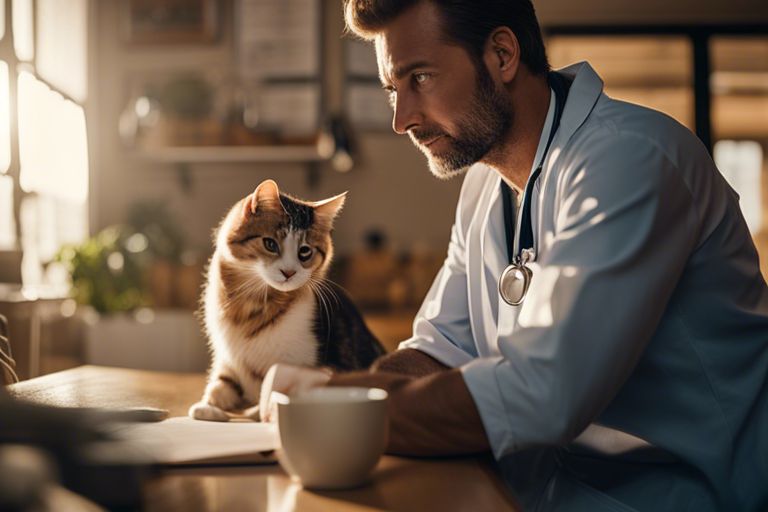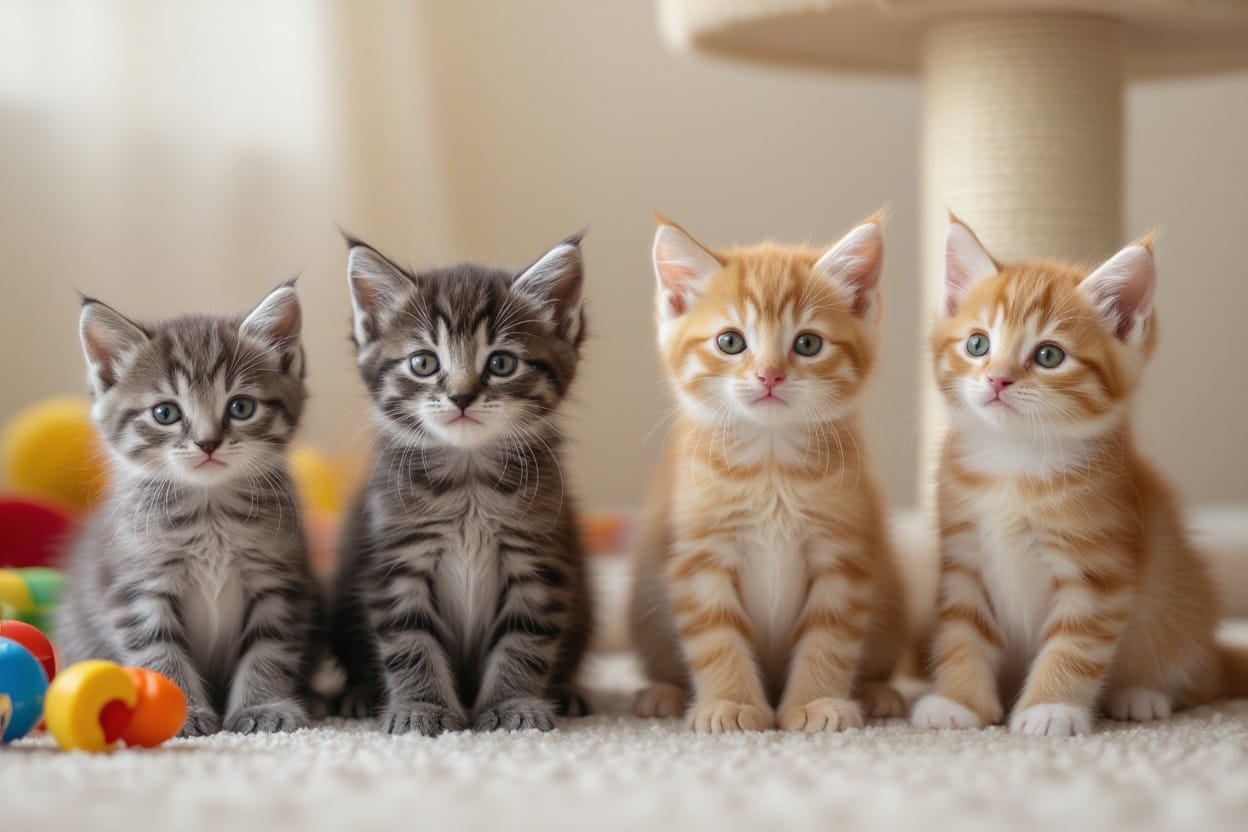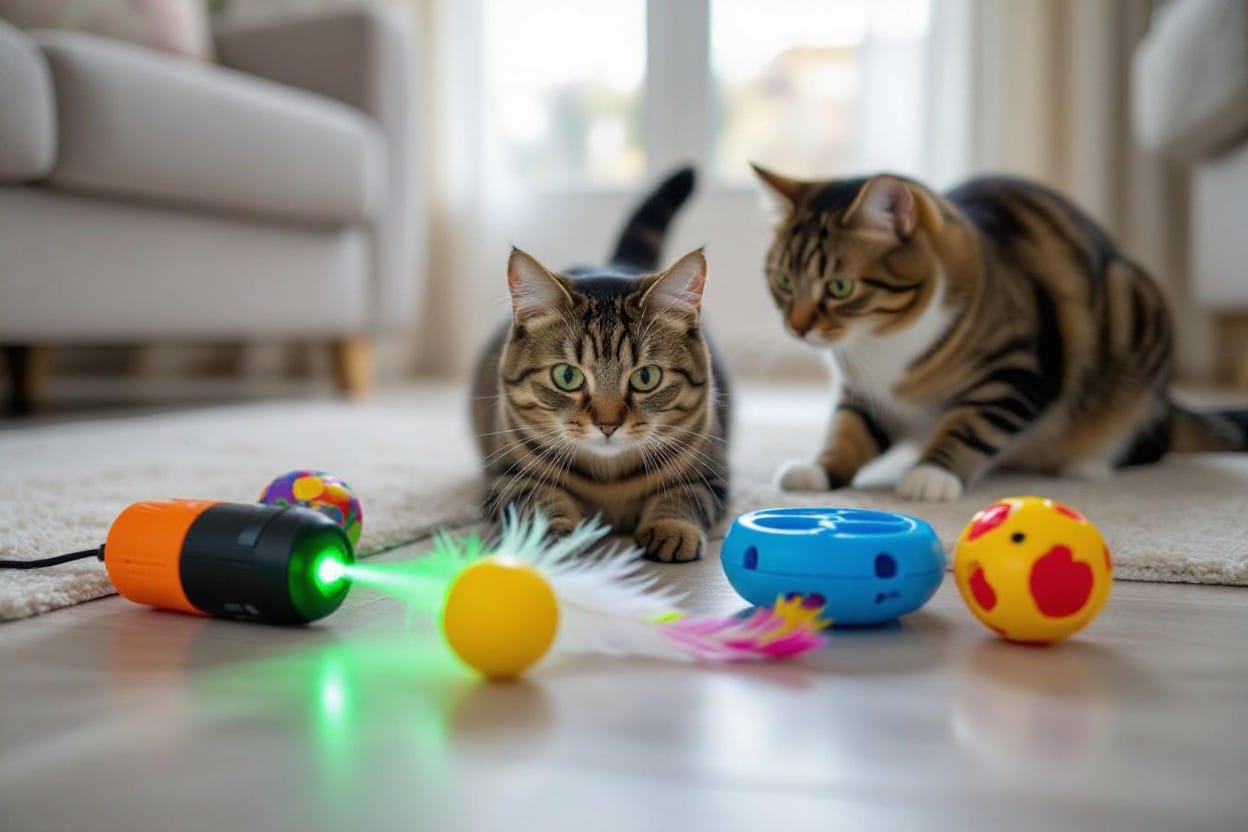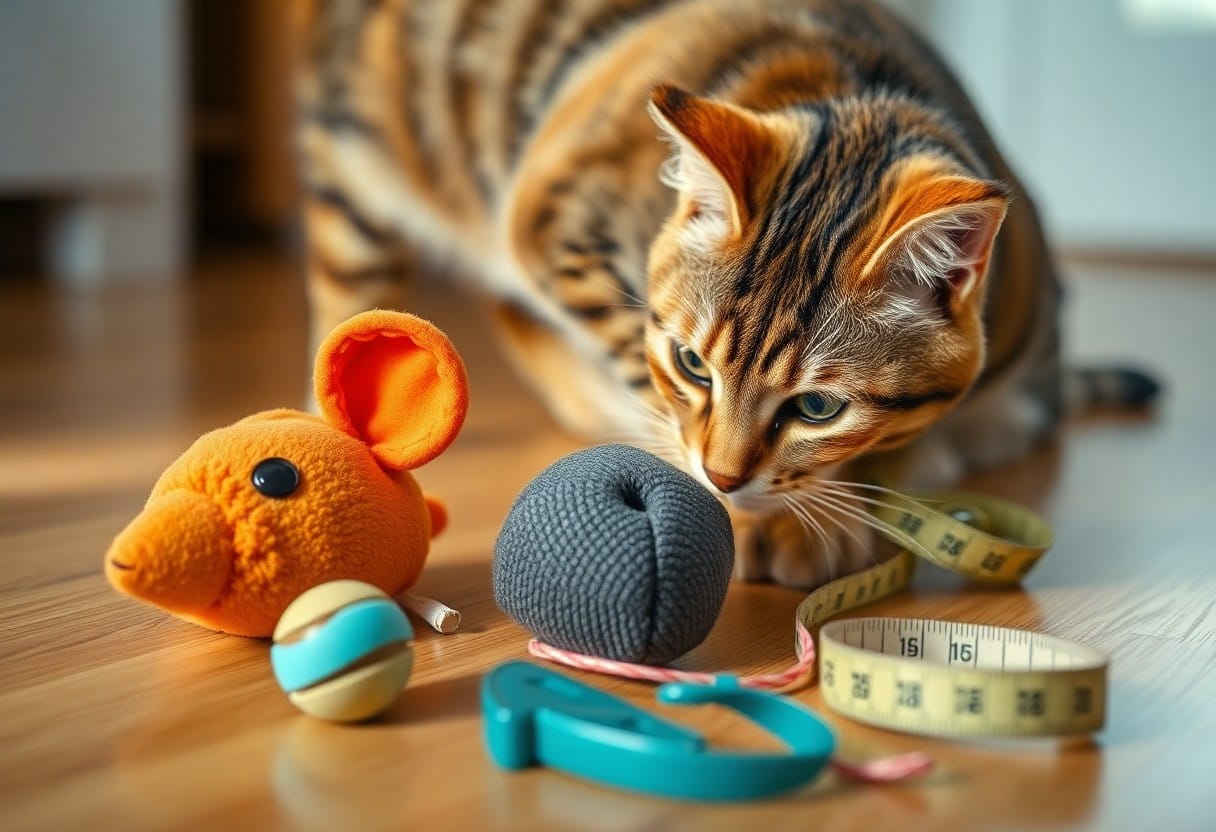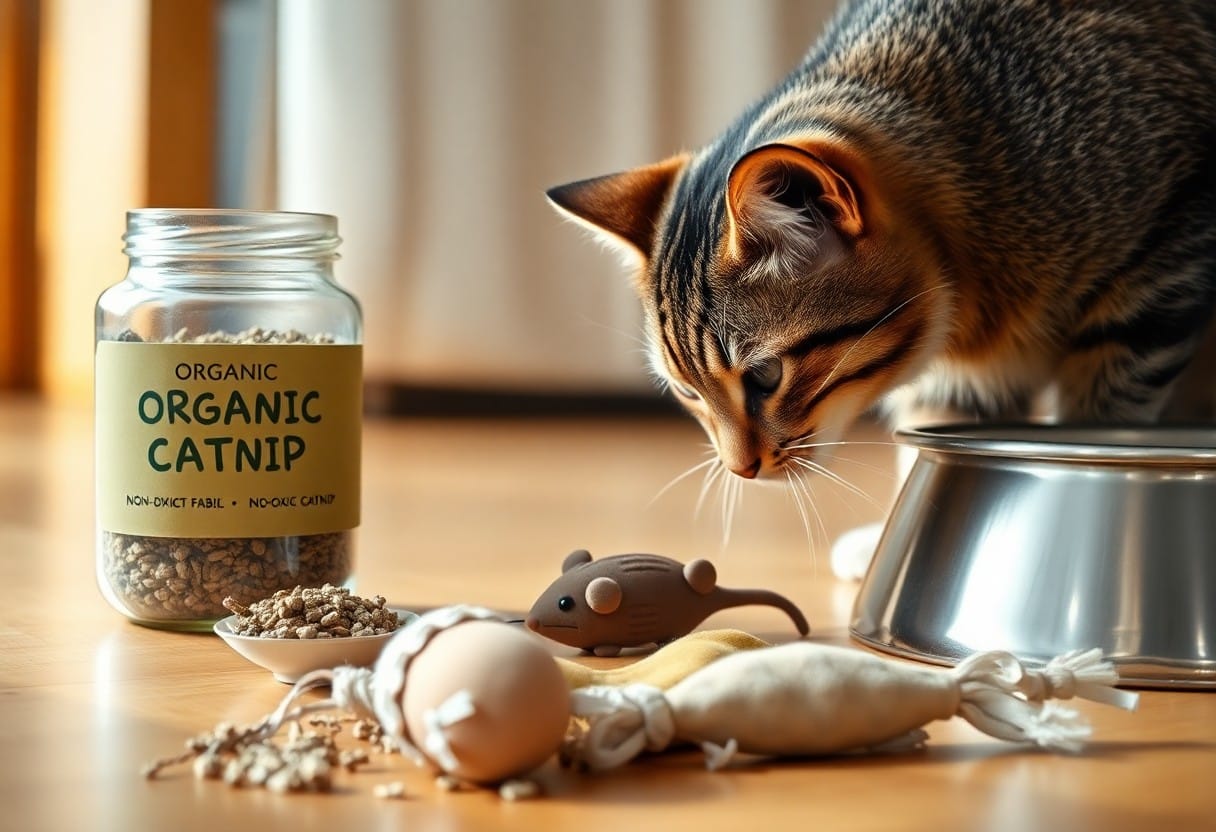This comprehensive guide will help cat owners recognize and address the most common health issues that can affect their furry feline companions. Cats are known for their independent nature, making it crucial for owners to be vigilant in monitoring their pets’ well-being. Understanding the signs and symptoms of common health problems in cats is crucial for early detection and timely treatment.
From dental issues and obesity to urinary tract infections and hairballs, this blog post will cover a range of health concerns that cat owners should be aware of. With expert tips on how to spot these issues and advice on the appropriate treatment options, you can ensure that your beloved cat stays happy and healthy for years to come.
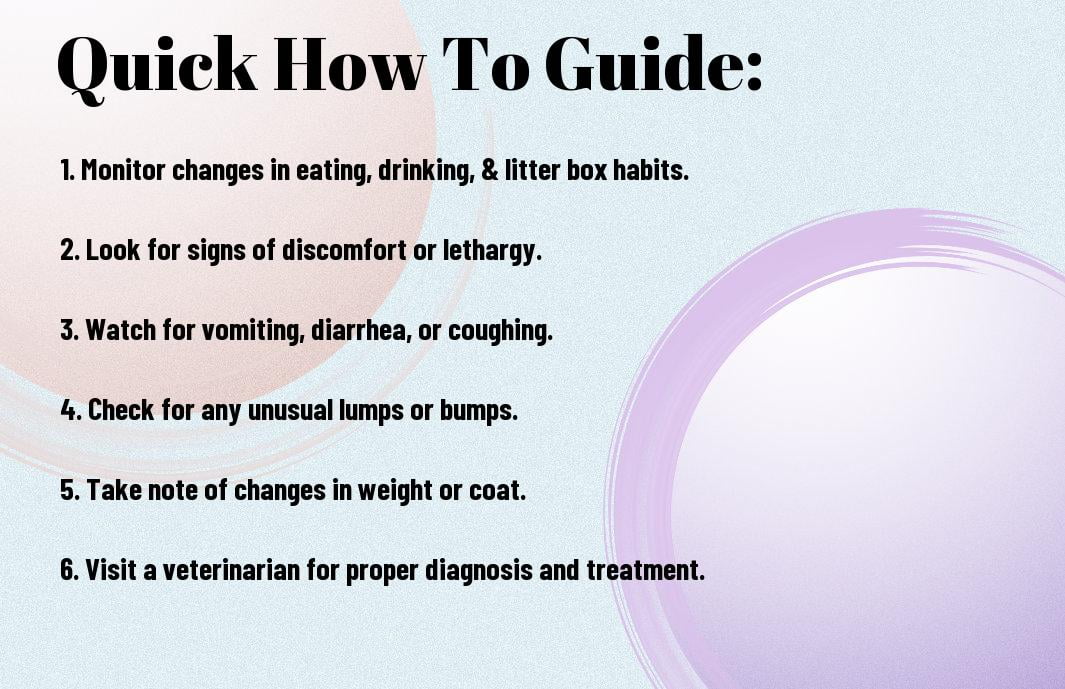
Understanding Feline Health: Recognizing the Signs
Behavioral Indicators of Illness
Even though our feline friends can’t tell us when they’re feeling unwell, they often exhibit changes in behavior that can point to underlying health issues. Some common behavioral indicators of illness in cats include sudden aggression, excessive grooming, changes in appetite, increased vocalization, hiding more than usual, or being less active. If you notice any of these changes in your cat’s behavior, it’s crucial to consult your veterinarian for a thorough examination.
Physical Symptoms to Observe
Any changes in your cat’s physical appearance or habits can also be signs of an underlying health problem. Keep an eye out for physical symptoms such as weight loss or gain, changes in litter box habits, bad breath, vomiting, diarrhea, coughing, sneezing, or limping. These physical signs could indicate issues ranging from dental problems to respiratory infections or even more serious conditions like diabetes or kidney disease. Prompt veterinary attention is crucial to diagnose and treat any potential health concerns in your cat.
Another important physical symptom to observe is changes in your cat’s coat. A dull, greasy, or unkempt coat can indicate health problems such as nutritional deficiencies, skin allergies, or thyroid issues. Regular grooming and monitoring of your cat’s coat can help you spot any abnormalities early on, allowing for timely veterinary intervention.
Nutritional Health: The Basis of Feline Wellness
The foundation of your cat’s overall health and well-being lies in proper nutrition. A well-balanced diet tailored to your cat’s specific needs is crucial for maintaining their health, energy levels, and longevity. By understanding the crucial nutrients required by cats and how to choose the right diet, you can ensure your feline companion leads a healthy and happy life.
Essential Nutrients for Cats
You may wonder, “What does my cat need to stay healthy?” Just like humans, cats require a mix of crucial nutrients to thrive. These include proteins, fats, carbohydrates, vitamins, and minerals. Proteins are vital for muscle growth and repair, fats provide energy and support cell function, while carbohydrates offer a source of quick energy. Additionally, vitamins and minerals play a crucial role in various bodily functions, such as maintaining a healthy coat and supporting a strong immune system.
How to Choose the Right Diet for Your Cat
When dicking out a diet for your cat, it’s crucial to consider their individual needs. Factors such as age, activity level, and any existing health conditions can influence the type of food that will best support their well-being. Consulting with your veterinarian can help you determine the right balance of nutrients for your cat’s diet. They may recommend a commercial cat food that is complete and balanced or suggest a specific dietary plan to address any health concerns.
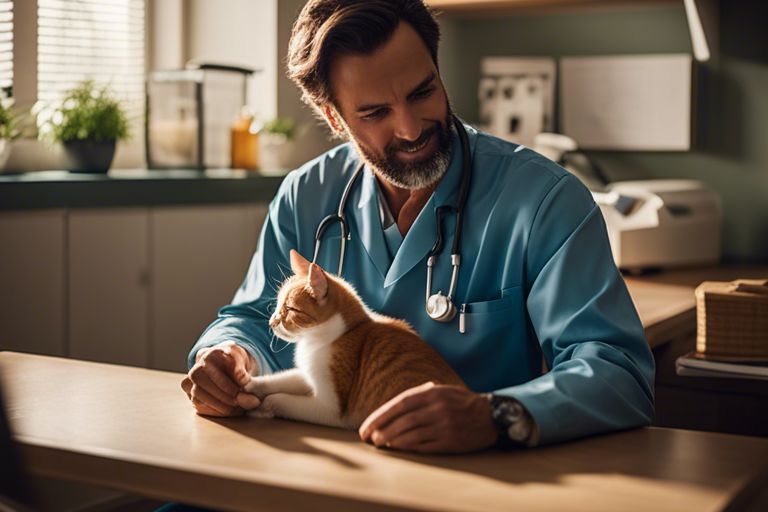
Preventative Care Strategies
Regular Veterinary Check-ups
To ensure the overall well-being of your feline friend, it is vital to schedule regular veterinary check-ups. These visits allow the vet to identify any potential health issues early on and provide appropriate treatment. During the check-up, the vet will conduct a physical exam, check for signs of dental problems, and discuss your cat’s diet and behavior.
Vaccinations and Parasite Control Tips
Keeping up to date with vaccinations is crucial in safeguarding your cat against common but preventable diseases. Your veterinarian will recommend a vaccination schedule based on your cat’s lifestyle and risk factors. Additionally, implementing a regular parasite control program is important to protect your cat from fleas, ticks, and worms.
- Follow your vet’s recommendations for core and non-core vaccines
- Administer flea and tick preventatives as directed by your vet
- Regularly deworm your cat based on your vet’s advice
Strategies like vaccinations and parasite control not only ensure the health and longevity of your cat but also contribute to the overall well-being of your family by reducing the risk of zoonotic diseases.
How To Spot And Treat Parasitic Infections
Identifying Common Parasites in Cats
Many types of parasites can infect cats, including fleas, ticks, ear mites, and intestinal worms. Some common signs of parasitic infections in cats include itchiness, hair loss, skin irritation, vomiting, diarrhea, and lethargy. Cats that spend time outdoors or interact with other animals are more susceptible to parasites.
Treatment Options and Preventative Measures
Some common treatment options for parasitic infections in cats include topical or oral medications prescribed by a veterinarian. Regular grooming and cleaning of bedding can help prevent parasites. It’s important to use flea and tick preventatives year-round, especially in areas where these parasites are prevalent.
Parasitic infections can be uncomfortable for cats and, if left untreated, can lead to more serious health issues. To protect your feline friend, it’s imperative to consult with a vet if you suspect a parasitic infection and follow their recommended treatment and prevention plan.
How To Handle Gastrointestinal Issues
Recognizing Symptoms Linked to Digestive Problems
Linked to digestive problems Noticing early signs of gastrointestinal issues in your cat is crucial for ensuring timely treatment. Symptoms may include frequent vomiting, diarrhea, constipation, flatulence, abdominal pain, and a noticeable change in appetite or water intake. Keep an eye on your cat’s litter box habits and watch for any significant changes in their stool consistency.
Dietary Adjustments and Medications
On the course of treatment for gastrointestinal issues, dietary adjustments play a vital role. Your veterinarian may recommend a special diet tailored to your cat’s needs, such as a bland diet or a hypoallergenic formula. These diets can help alleviate symptoms and promote better digestion. Additionally, medications such as probiotics, laxatives, or anti-nausea drugs may be prescribed to manage gastrointestinal issues effectively.
Medications Cats may require medications to address specific symptoms related to their gastrointestinal problems. It’s necessary to follow your vet’s instructions carefully when administering any prescribed medications to ensure the best possible outcome for your feline friend. Always consult your veterinarian before giving your cat any over-the-counter medications or supplements to avoid any potential complications.
Managing Feline Dental Health
How to Recognize Dental Disease in Cats
Keep an eye out for signs of dental disease in your feline companion. Some common indicators include bad breath, swollen or bleeding gums, difficulty eating, loose or missing teeth, and drooling. Cats may also paw at their mouths or show signs of discomfort while chewing. If you notice any of these symptoms, it’s necessary to consult your veterinarian promptly to prevent the progression of dental issues.
Tips for Dental Hygiene and Professional Care
Little steps can make a big difference in your cat’s oral health. To maintain good dental hygiene, consider brushing your cat’s teeth regularly using a feline-friendly toothbrush and toothpaste. Additionally, your veterinarian may recommend dental cleanings to remove plaque and tartar buildup. This professional care is crucial in preventing serious dental problems and maintaining your cat’s overall health.
- Brush your cat’s teeth regularly using specialized pet toothpaste and a toothbrush
- Schedule routine dental check-ups and cleanings with your veterinarian
With proper dental care and regular veterinary check-ups, you can help your cat maintain a healthy and happy smile for years to come. This proactive approach to feline dental health can prevent pain, infection, and other complications associated with untreated dental disease.

Factors Influencing Chronic Conditions in Cats
Despite our best efforts to keep our feline friends healthy, they can still develop chronic conditions as they age. Factors such as genetics, diet, environment, and overall healthcare can all play a role in the development of these ongoing health issues in cats.
- Genetics: Some cats may be predisposed to certain health conditions due to their breed or family history.
- Diet: A poor diet lacking important nutrients can weaken a cat’s immune system and make them more susceptible to chronic conditions.
- Environment: Stress, exposure to toxins, and lack of mental stimulation can all impact a cat’s overall health and contribute to chronic issues.
Perceiving changes in your cat’s behavior or health early on can help in managing chronic conditions more effectively.
How-To Manage Care for Aging Cats with Chronic Issues
If you have an aging cat with chronic health issues, it’s important to work closely with your veterinarian to develop a comprehensive care plan. This may include regular check-ups, medication management, dietary adjustments, and lifestyle changes to accommodate your cat’s specific needs.
Now is the time to prioritize your cat’s comfort and quality of life. Provide a warm and cozy environment, easy access to food and water, and plenty of love and attention to help them navigate their golden years with ease.
Understanding how to manage care for aging cats with chronic issues can be a challenging but rewarding experience. With patience, consistency, and a deep understanding of your cat’s needs, you can ensure they live out their later years in comfort and happiness.
To wrap up
On the whole, it’s necessary for cat owners to be vigilant in monitoring their feline friends for signs of common health issues. By staying informed about symptoms such as vomiting, diarrhea, lethargy, or changes in appetite, owners can seek prompt veterinary care and ensure their cats receive the necessary treatment. Regular vet check-ups, a balanced diet, and a safe environment are key factors in maintaining a cat’s overall health and well-being.
Do not forget, early detection and treatment are crucial in managing health issues in cats. Being proactive and attentive to your cat’s behavior and habits can make a significant difference in their quality of life. By becoming familiar with common feline health problems and knowing how to spot and treat them, you can help your cat live a long and healthy life.
FAQ
Q: What are some common health issues in cats?
A: Common health issues in cats include dental disease, obesity, urinary tract infections, and respiratory infections.
Q: How can I spot signs of health issues in my cat?
A: Keep an eye out for symptoms such as lethargy, changes in appetite, vomiting, diarrhea, and difficulty breathing, as these can indicate health problems in cats.
Q: What should I do if I suspect my cat is unwell?
A: If you suspect your cat is unwell, it is important to take them to the veterinarian for a thorough examination and proper diagnosis. Early detection and treatment of health issues can improve outcomes for your cat.
Q: How are common health issues in cats treated?
A: Treatment for common health issues in cats varies depending on the specific condition. It may include medication, dietary changes, surgery, or other interventions as recommended by your veterinarian.
Q: How can I prevent health issues in my cat?
A: To help prevent health issues in your cat, ensure they have a balanced diet, plenty of exercise, regular veterinary check-ups, and a clean and stress-free environment. Additionally, keep an eye on any changes in your cat’s behavior or appearance and address them promptly.
